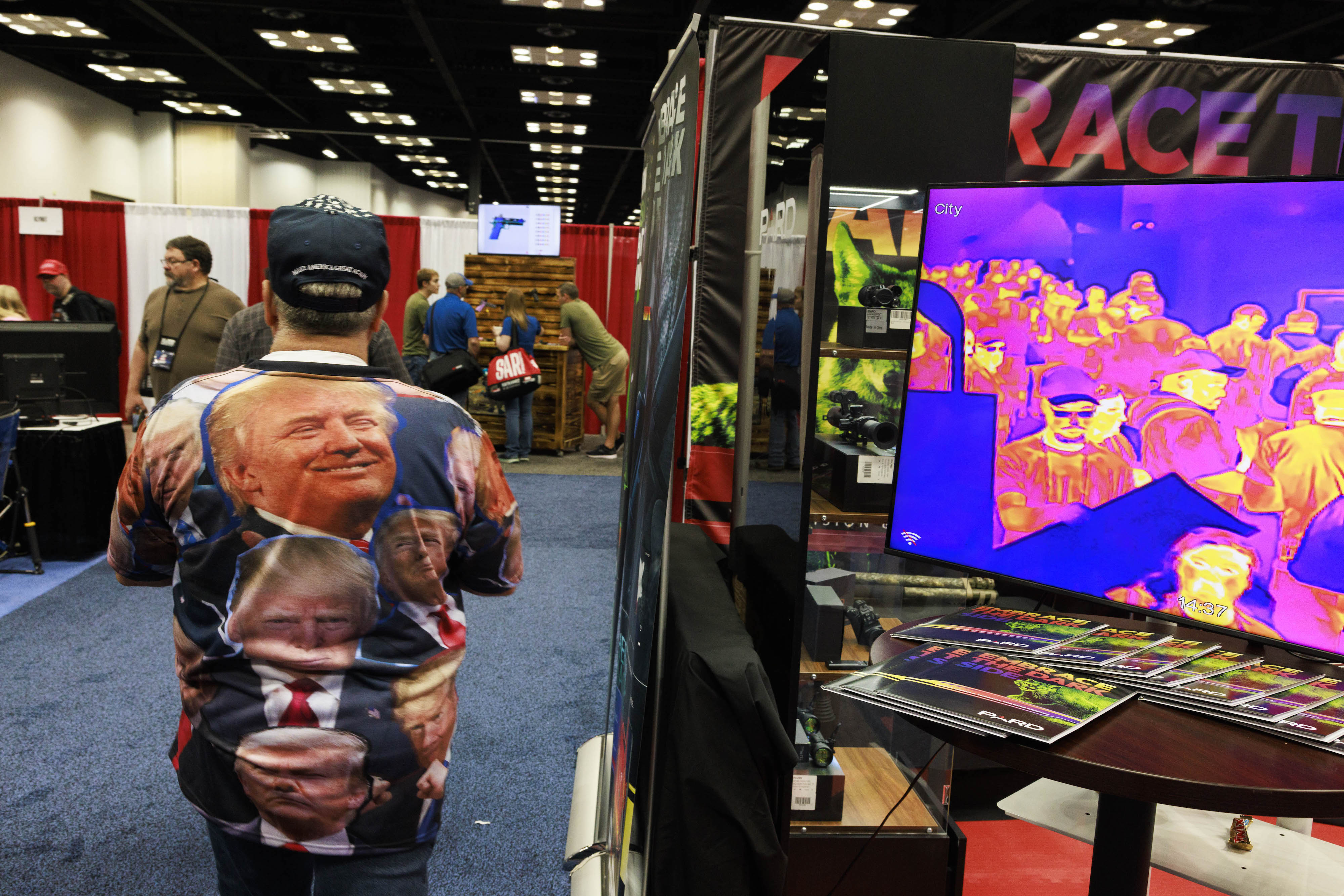[ad_1]
Many Americans are practically terrorized into consumption. The interactions I experienced at the gun show strongly resonated with anthropologist Joseph Masco’s argument in his book The Theater of Operations. Masco writes of how the adversarial nature of the Cold War conditioned Americans to a pervasive sense of imminent risk and destruction. The ensuing mindset has allowed U.S. political power and the military-industrial complex to flourish side by side. The cultivated paranoia and distrust among smaller, local communities can be as readily mobilized by election campaigns as they can be by anti-government elements, foreign or domestic.
In reality, fears of the “other” America, on either side, stifle conversation and obscure common ground. My interviews with VCDL and other militia members revealed a far more nuanced picture of gun rights activism than I expected. While most of the militia members I interviewed supported or voted for conservative candidates, their views of gun control reflected more moderate ideals than Republican political rhetoric would suggest. Most supported proposed gun control ideas centered on extensive background and mental health checks, as well as significantly expanded training requirements for gun owners.
But there was one key difference with more moderate or liberal voters: Many militia members I interviewed expressed intense apprehension of tyrannical government overreach. They felt their constitutional rights were in immediate jeopardy.
Why was this constitutional right, as codified in the Second Amendment, so important to them? To answer that question, I had to dig into the deeper reasons people joined local militias.
ORGANIZING MILITIAS
Most of the militia members I met in Virginia were self-identified men of Western, Northern, and Eastern European heritage. Their impetus for starting or joining a militia was often sparked by a personal setback or tragedy. The impact of such events, ranging from joblessness to heartbreak or a death, often left the prospective members feeling alone, alienated, and/or in search of a purpose. Many of them found that sense of purpose in Second Amendment activism.
Most of the militia members with whom I spoke were moved to action by the narratives of politicians, particularly around election campaigns, who urged vigilance against the political seizure of guns and, metaphorically, of constitutional rights.
This should come as no surprise: The National Rifle Association spends about US$3 million annually on direct gun rights lobbying that supports pro-gun political advocacy. The trickle-down effect of such messaging appeals powerfully to people who perceive themselves and their communities as having lost status and being in decline.
[ad_2]
Source link

Wow, amazing blog structure. The overall look of your site is great, as well as the content! Keep working more.
I agree with everything you’ve said in your post; it’s clear that they’re all very persuasive and will work. Nevertheless, the posts are too short for newcomers; could you maybe make them a little longer the next time? I’m grateful for the post.